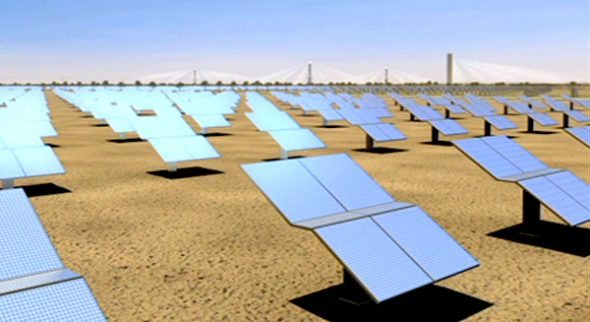While North American regulators continue debating the merits of feed-in tariffs, another developing country has adopted the policy renowned for rapidly developing renewable energy in the developed world.
This week Jordan’s Electricity Regulatory Commission introduced tariffs that will be paid for generation from various renewable technologies. The move was in response to the Renewable Energy and Energy Efficiency Law (REEL) passed in April that requires the national electric utility to purchase generation from renewable generators.
The announcement appears timed for the Second Arab Renewable Energy Congress to be held in Amman 16-18 December.
Very few details of the new policy are available in English. What is known is that the policy is a radical reversal of the previous direction in Jordanian energy policy and follows a festering dispute about the role of nuclear power.
World attention has focused on Iran’s attempts to build nuclear reactors, but has overlooked Jordan’s once ambitious plans. As recently as 2009, Jordan entertained the prospect of building as many as five nuclear power plants.
Jordan’s parliament shelved those plans in May as well as canceled a contract with French company Areva for mining uranium.
It’s not clear if the cancelation of the nuclear plants and the uranium mining are directly related to the previous passage of Jordan’s renewable energy law.
Like Israel, Jordan is dependent on natural gas imports from Egypt. Recent sabotage of the gas pipelines has brought Jordan’s precarious dependence on energy imports into focus.
The Jordanian government is also facing a fiscal crisis as it subsidizes more than half the cost of electricity to consumers.
The prices posted by the Electricity Regulatory Commission are described as a “ceiling tariff”. What this means is not explained in the English-language text. There is also a 15% bonus for projects of “fully Jordanian origin”.
Here’s a summary of what was published in English:
- Tariff differentiation by technology only,
- Wind, solar PV, concentrating solar, biomass, and biogas technologies included,
- Bonus payment capped at 500 MW, and the
- Tariff is based on the cost of generation model.
Critics of the country’s previous nuclear plans have noted that Jordan has unambitious targets for renewable generation: 7% of consumption by 2015, and only 10% by 2020. They have also noted that generating electricity from heavy fuel oil in Jordan costs JOD 0.19 per kWh ($0.26 USD per kWh) and from Egyptian natural gas costs JOD 0.12 per kWh ($0.16 USD per kWh).
The addition of Jordan to the ranks of jurisdictions using feed-in tariffs increases the gap between programs using feed-in tariffs and quota models (Renewable Portfolio Standards) for developing renewable energy.
In 2013 both Great Britain and Italy will move their programs from the European version of Renewable Portfolio Standards to feed-in tariffs, widening the gap further.
Jordan’s choice of feed-in tariffs adds to the controversy surrounding the role of Renewable Portfolio Standards in future energy policy. The respected German Institute of Economics (Deutsches Institut für Wirtschaftsforschung) has thrown fuel on the fire with two provocative new studies arguing in effect that feed-in tariffs are superior at reaching aggressive renewable targets.
This article was originally published on Wind-Works.org. Republished with permission.












